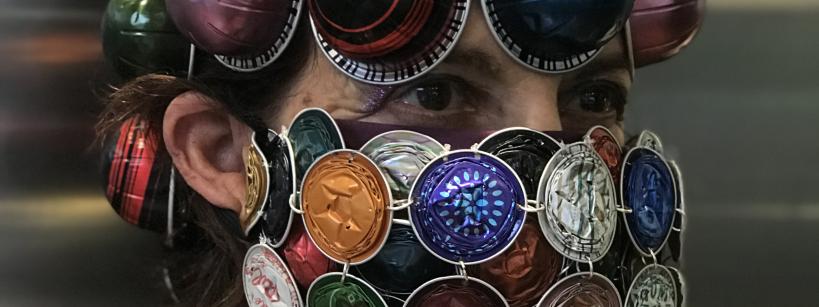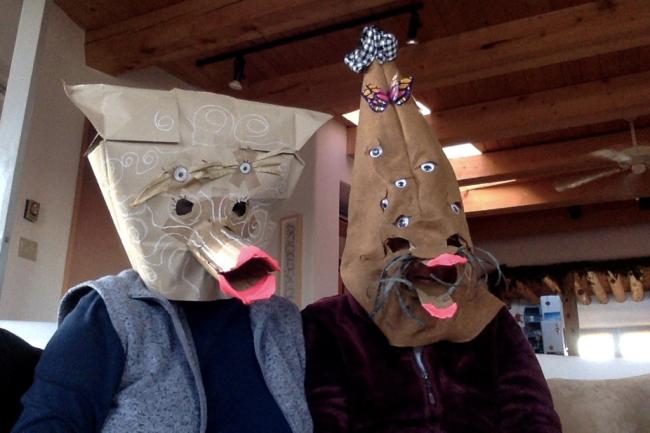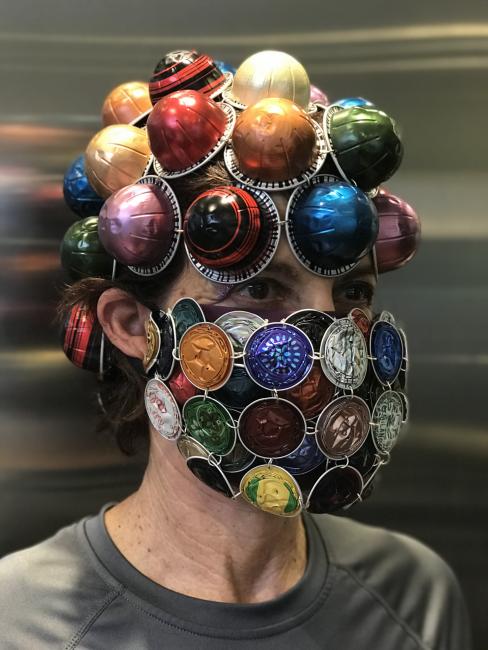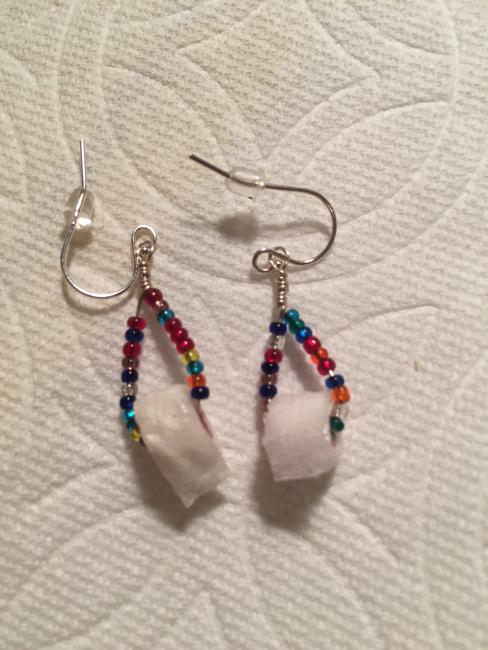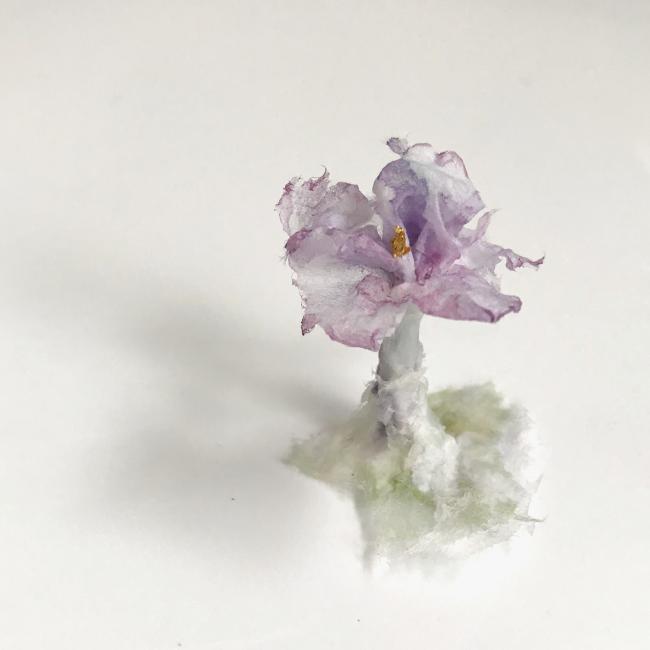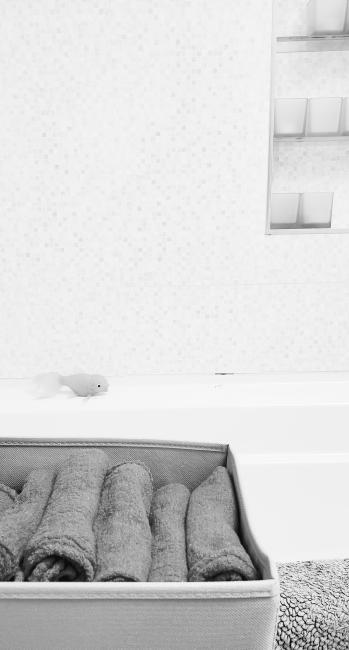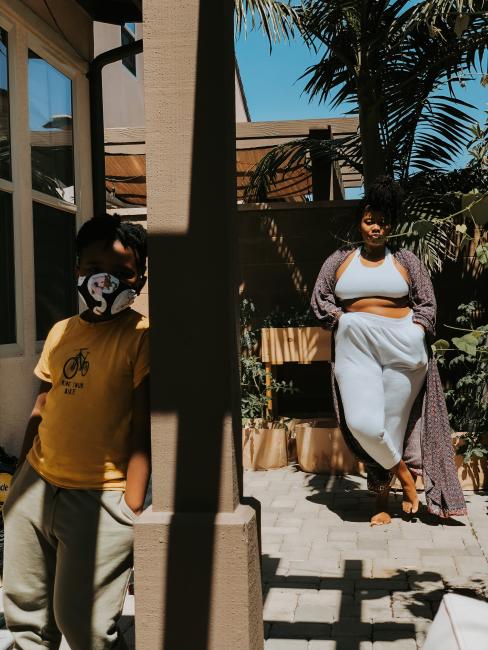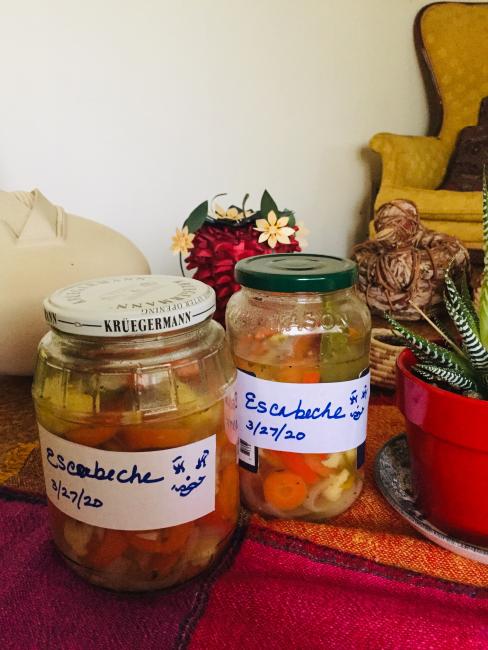Nicole Mitchell: “I custom-designed, and dyed antibacterial hemp face covers, Made-in-LA. I chose hemp because of its natural antibacterial properties, UV, and mold resistance. Hemp fabric gets softer and more durable with every wash cycle. Our first production runs, I decided to keep a minimalistic design with no logo or prints because our top priority was to produce quality protection for the people a quick as possible. Urbane face covers represent a movement of unity not only to protect our global health but to consume items where the product lifecycle will benefit the Earth's ecosystems in the future. I also feel as a black woman I naturally lean towards protecting others' needs before my own and I have spent sleepless nights to perfect my product, packaging, and content. I'm proud to help others maintain a healthy lifestyle.”
By: Marina Nye, Phd Student, UCLA History dept.
We are quickly approaching the one-year anniversary of the first major lockdown here on the West Coast. It's hard to believe that not even twelve months ago, Americans were facing shortages of both essential and non-essential goods. Food, masks, cleaning supplies, hand sanitizer, and especially toilet paper, all proved difficult if not impossible to find. This scarcity forced Americans to come up with creative and resourceful alternatives to these necessities.
The CCHI (Collecting Community History Initiative) submissions have elucidated the ingenuity of the West. This resourcefulness manifested in many different ways: out-of-the-box cooking approaches, imaginative paper good substitutes, upcycling of fabric to make masks, and various forms of recycled artwork.
Americans were forced to get creative by changing recipes to adapt to the food shortages and limit their grocery store exposure. One CCHI contributor, Keisha Raines, incorporated more frozen vegetables and non-perishable foods into her meal prep. Others, such as Samantha Broxton, planted an edible garden to supplement her families’ meals. American’s explored eco-friendly alternatives to sustain their families.
Kerri Wong took a similar resourceful approach to the toilet paper shortage. “This may feel like the Apocalypse,” she explains, “but I refuse to compete for toilet paper.” Instead, she utilized paper clothes [AH1] as a substitute during the shortage.
When masks were in short supply at the beginning of the pandemic, many Americans looked no further than their linen closets to find supplies. Submissions to the initiative described innovative material substitutions to make masks: socks, sheets, comforter covers, pillowcases, raw canvas, curtains, old clothing, napkins, shoelaces, shower curtains, cardboard, and yarn. If it was fabric, it was fair game! Not only were these upcycled masks ingenious, but they were environmentally sustainable. Home-made mask production reduces the waste produced from the global fashion industry. Designer Nicole Mitchel takes this environmentally-friendly mask production to heart in her line of dyed antibacterial hemp face covers. She explains that her “face covers represent a movement of unity not only to protect our global health but to consume items where the product lifecycle will benefit the Earth's ecosystems in the future.” Mitchel, and creators like her, are using the restrictions caused by the Pandemic to highlight the importance of environmental sustainability. These are just some of the ways that Americans have proven to be incredibly resourceful when it comes to their masks and upcycling.
This environmentally conscious production can also be seen in pandemic themed/inspired art. Ranging from non-functional masks to delicate toilet paper flowers, creators have utilized all sorts of materials lying around their homes to visually express their own personal pandemic experience. Using only one sheet of toilet paper, Jen Snoeyink created a miniature flower which she describes: “It shows transparency, delicacy, fragility, and beauty in this current state, while using a material that we tend to take for granted.” Other artists have recycled trash, such as used Nespresso coffee pods, to make elaborate face masks. Artists across the West have embraced the scarcity and used recycled materials to represent this shortage of material goods.
The resourcefulness in the CCHI submissions demonstrates American’s resilience and creativity when faced with adversity and scarcity. The effects of Covid-19 have led Americans to rethink our relationship with material goods. Artists, cooks, and consumers are being more mindful about their consumption. Even though fighting over toilet paper is a bygone issue, these sustainable alternatives remain a constant in our daily lives. The question remains how this rise in environmental consciousness and sustainability will translate in a post-pandemic world.
Below are just a handful of submissions from the Collecting Community History Initiative that demonstrate American’s ingenuity during scarcity.
